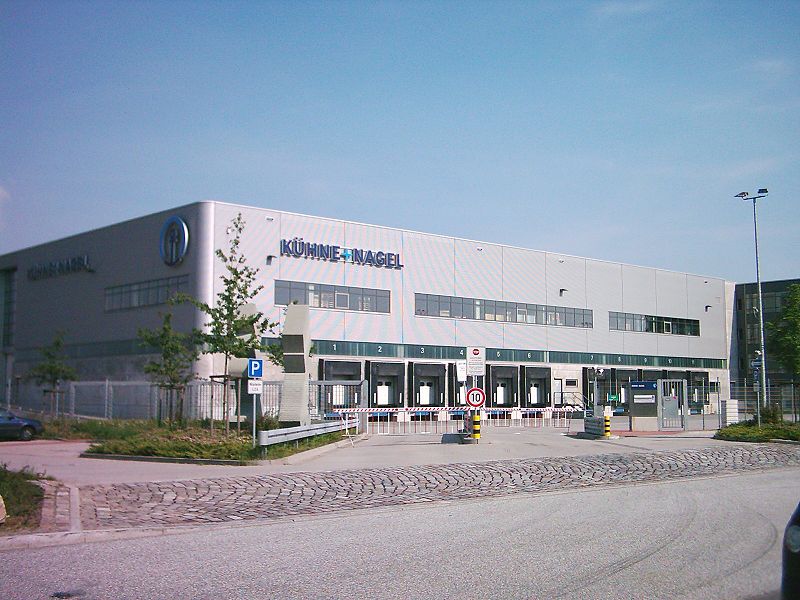
Distribution center of Kühne + Nagel in Hamburg, Germany. K+N is one of the largest 3PL providers in Europe.
We have seen what third-party logistics is and what are its strengths and weaknesses; and why it will be part of logistics for global health and aid. But what does this mean for us? What will change in the way we work?
Improved information management practices
To be able to work well with 3PL providers, we will need to improve our information management: without knowing fairly well what needs to go where (and hence, what is where and what already goes where), we will not be able to enjoy the advantages of 3PL. What’s more, the more advanced 3PL providers have developed their own supply chain visibility solutions; and not only that, but often they are keen to help us to make our own systems interoperable with theirs, which almost inevitably will lead to better systems for our own use. They do that, not from the goodness of their hearts, but because their customers asked for it – you know, “no delegation without verification” – and because they think that better interoperability will also lead to better efficiency of their own processes.
Smaller logistics departments
If we can outsource all or most of our boring, ‘routine’ logistics work to 3PL providers, our own logistics departments can concentrate on those logistics that are not easily transferable: because they are in high-security settings, or because of specific sensitivities that mean that we cannot use 3PL providers without damaging our operations, or because they are in places where, quite simply, there are no 3PL providers. What remains is a small, highly specialised, highly professional, very flexible unit that delivers four types of services: supply chain management in places where 3PL providers cannot deliver or their services are not acceptable; leadership and coordination of quick scale-ups of operations in case of a sudden emergency; development and monitoring of logistics policies and contracts (including those with 3PL providers); and specialised logistics input for development of policies in other areas and for management.
Bigger logistics departments
Got you there, didn’t I?
Think of this: why would 3PL providers necessarily be from outside the aid world? We already see some 3PL activities from aid organisations themselves, e.g. WFP’s role as logistics provider of last resort in the cluster system. So why wouldn’t some of the larger aid organisations with strong logistics capacities act as 3PL providers for smaller organisations? I can easily foresee that organisations like WFP, MSF, or Oxfam, or perhaps even some governmental health logistics units would start delivering 3PL services to other aid organisations or even ministries of health. After all, they know better than most generic 3PL providers how to operate in the settings where we work, and hence can provide even better (and probably cheaper) services. These hybrid service delivery organisations will, by necessity, grow larger than they are now.
Greater logistics departments
Whichever of these choices these departments make, it will always allow them to become better than they are now: more specialised, more focused on their strengths and less exposed in their weaknesses, more flexible, more efficient, using synergies where they occur (instead of ignoring them as we often do now).
So what are your views? Is this too rosy a picture? Are you already going this way? Things I have missed?

{ 1 comment… read it below or add one }
Very informative and insightful post.